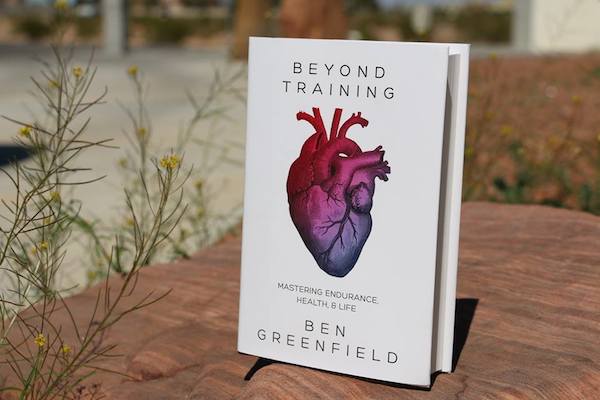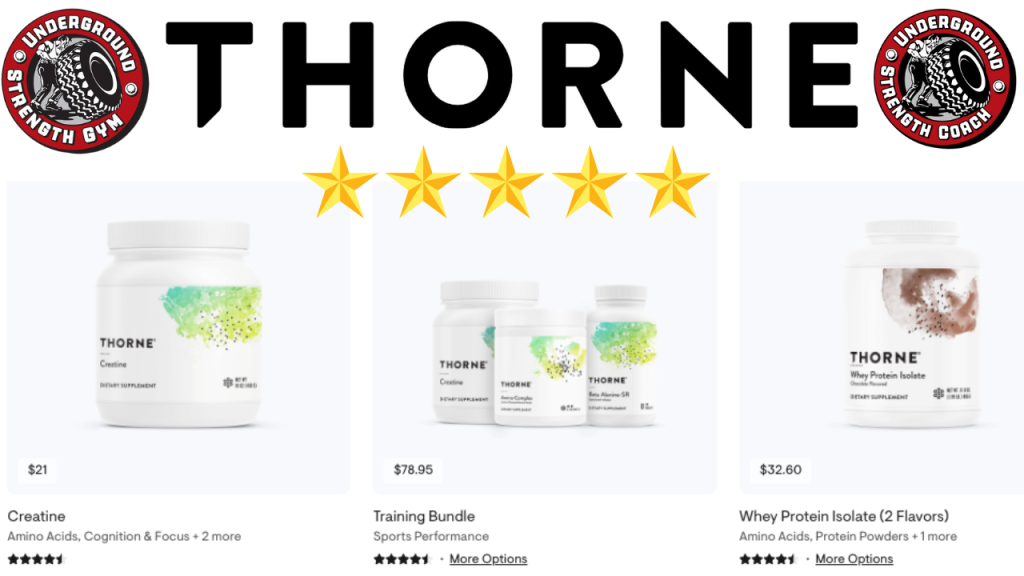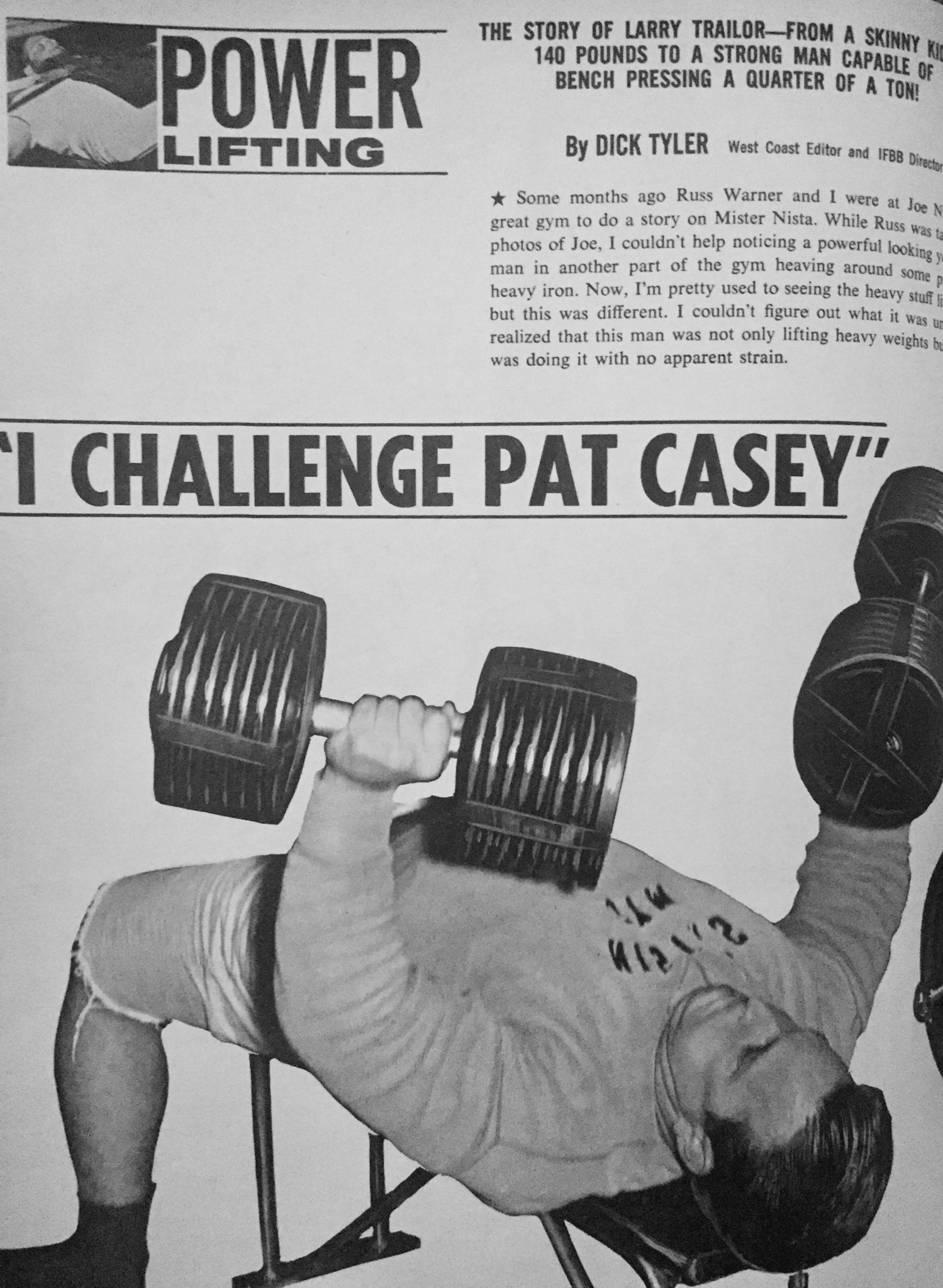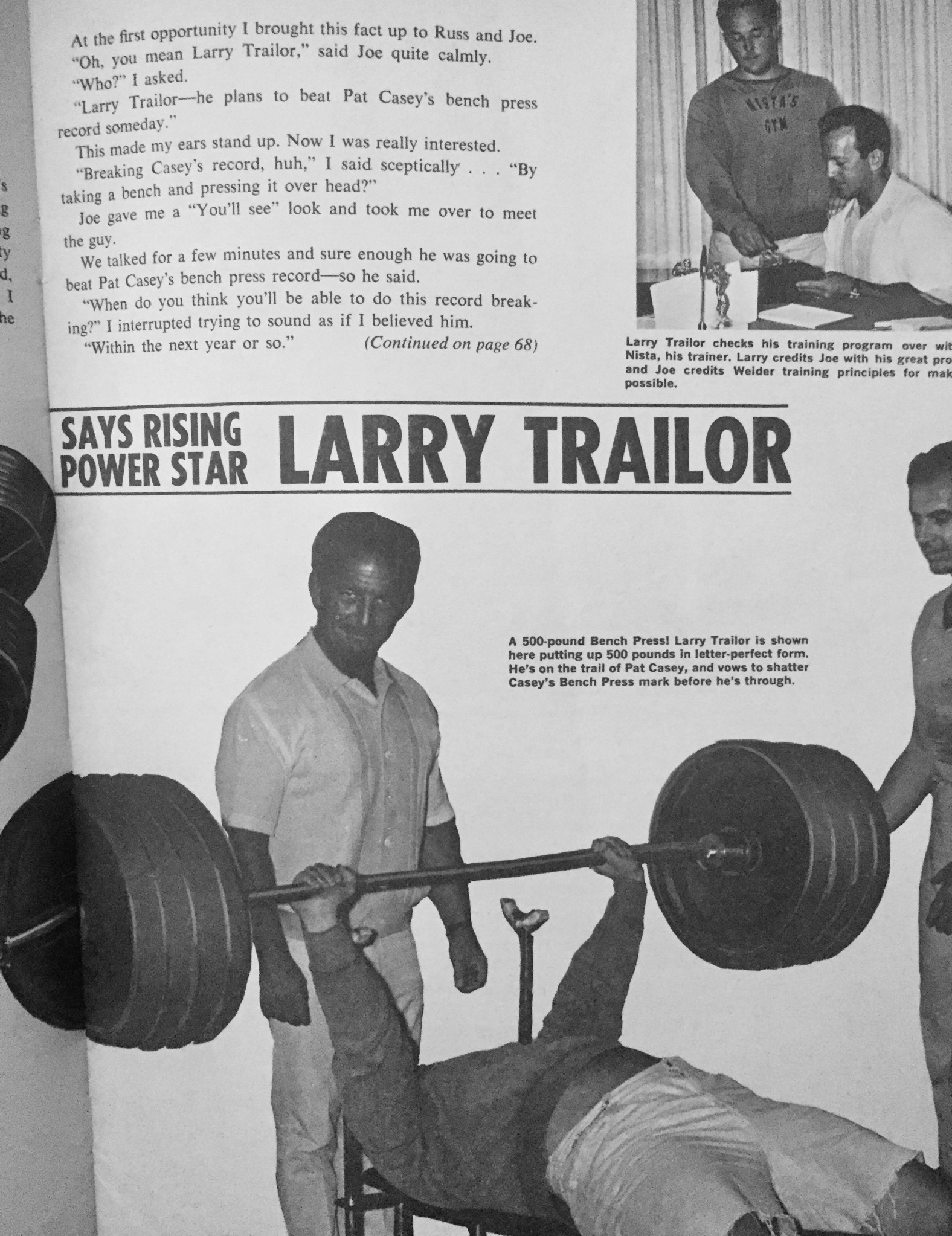Eating Yourself Strong
Guest Post by Ben Greenfield, Author of BEYOND TRAINING
I always talk about the need to constantly learn, to evolve, to listen to your body, to invest in your knowledge & education and to never be "too smart for the classroom".
I'd like to introduce you to my friend, fitness & lifestyle expert, Ben Greenfield.
Ben is also a Coach of mine. I've invested in private coaching for changes in my nutrition, lifestyle, training and more, all in accordance with my blood work. I'm excited to have Ben talk about nutrition in this guest post.
Pay attention as Ben breaks down many fallacies and talks about how what is happening on the inside of your body often times does NOT reflect what we see on the outside of the body aka your physical appearance.
I'll let Ben take it from here.......
_____________________
I have to admit that I cringe inside when I hear a thick-armed aged veteran of the weight room turn to a young neophyte in the gym and tell them…
…”Kid, you want muscle?”
The skinny guy leans in and nods vigorously and the grizzled strength Yoda continues…
…”Eat everything in sight and lift heavy stuff.”
Ok, I know you’re not an idiot if you’re reading this.
I know that you realize that muscles need a serious amount of calories if you want to get them seriously swole.
But when you inspect the dietary recommendations of some of the most famous strength coaches on the face of the planet, you see the same, standard orthodox advice to eat calorie-dense foods ad libitum, including peanut butter and jelly sandwiches, canned tuna fish, ice cream, subway sandwiches and meat and eggs, no matter what the sources. Lots and lots of meat and eggs.
So what?
Here’s what: eating for strength is not just about being strong for the next thee years of your life.
It’s about having muscle, vitality, health, libido, clean arteries and low inflammation for the rest of your life.
And frankly, you’re simply going to be one of those people who looks like a Greek god or goddess on the outside but is dying on the inside unless you consider not just the calorie density of your strength-building foods, but also the health and the nutrient density.
That’s right – the old, grizzled strong guy at the gym most likely has sludge in his arteries and an increasingly bad back.
But that can all be avoided if you make the right dietary choices when you’re shoving thousands of calories down the hatch.
You can eat like a pig without destroying your body.
I could write an entire book on the consideration of the qualities of the food that you put in your body and the science behind this stuff.
Actually, I have. It’s called “Beyond Training”, because (duh) it goes into everything that goes above and beyond just training.

However, if you want to skip the science and delve right into the nitty-gritty application, then keep reading…
Eating Yourself Strong
Let’s begin with three simple rules for eating yourself strong. This stuff works whether you’re a guy or a girl.
Rule # 1) Eat a Testosterone Supporting Diet
A testosterone supporting diet includes adequate amounts of zinc, cholesterol, B vitamins, and arachidonic acid. You get these type of compounds by including foods such as grass-fed, organic beef (yes, grass-fed, organic), oysters, pastured eggs (buy ‘em local), garlic, cold water fish that is not canned and full of metal, and organic broccoli.
Rule # 2) Avoid Excessive Alcohol, Soy & Caffeine
Each of the three components listed above can put a huge dent in your ability to build strength or add muscle. Be careful with alcohol (more than 1 drink per day – especially beer - is a fast path to fat formation, man-boobs and too much estrogen), soy (particularly unfermented soy sources like tofu, edemame, soy milk, soy nuts, etc.), and caffeine (more than 1 cup of coffee per day can put a big dent on your testosterone:cortisol ratio).
Rule # 3) Keep Blood Amino Acids & Glycogen Levels Topped Off
For building strength as quickly as possibly, you should have high levels of blood amino acids and storage carbohydrate levels when you hit the weights.
The best way to achieve this is by avoiding morning fasted strength training sessions, spreading 20-25g protein portions throughout day with a focus on highly bioavailable and low-allergenic proteins such as goat-based proteins or vegan based proteins (rice, pea, hemp, etc.) without added sweeteners like acesulfame potassium, soy, corn, etc..
Two additional potent strategies are the use of 5-10 grams of essential amino acids prior to or during strength training, and timing of your biggest carbohydrate intake (about 20-30% of your total daily calorie intake) immediately after your strength training sessions.
How Much Protein?
I realize that I just emphasized that you should get adequate protein for strength building, but generally, the importance of a high total volume of protein is blown way out of proportion – to the detriment of your liver and kidneys.
Sure, you certainly need the stuff. After all, when you eat protein, it gets broken down into protein building blocks called amino acids, and the amino acids are used for everything from cellular repair of all your damaged muscle fibers to a host of other metabolic reactions.
So to determine how much protein you actually should be getting, you need to be familiar with a term called “nitrogen balance”.
Here’s how nitrogen balance works:
Nitrogen enters your body when you consume protein from food or amino acid supplements, and nitrogen exits your body in your urine as ammonia, urea, and uric acid (all the breakdown products of protein) When the amount of protein you eat matches the amount of you use, you’re in nitrogen balance.
As you can probably deduce, if you don’t eat enough protein, you’ll be in negative nitrogen balance and quite unlikely to be able to repair muscle after a workout (a “catabolic” state), and if you consume too much protein, you’ll be in positive nitrogen balance, and while you’ll have what you need for muscle repair (an “anabolic” state), there can be some health issues that arise when you achieve too positive a state of nitrogen balance – since all that ammonia, urea and uric acid has side-effects (we’ll get into that in just a bit).
The current US recommended dietary allowance (RDA) is 0.36 grams of protein per pound of body weight per day (0.8g/kg), and was designed for most people to be in nitrogen balance – without protein deficits or protein excess.
While athletes and frequently exercising individuals need more protein than this, you’ll frequently see bodybuilders, football players, weightlifters and other big strength and power athletes taking this to the extreme and consuming far in excess of this protein RDA (in some cases up to 2 grams per pound!)
But studies suggest that even for athletes, there really isn’t much additional benefit of exceeding 0.55 grams per pound of protein (1.2g/kg) if you want to maintain nitrogen balance.
If you’re trying to exceed nitrogen balance for the purpose of putting on muscle, Contemporary Issues in Protein Requirements and Consumption for Resistance Trained Athletes indicates that you don’t need to eat more than 25% above that 0.54 g/lb, which would be 0.55×1.25, which is 0.68 g/lb, or 1.5g/kg.
A spinach salad with fresh vegetables, hummus or flax seed crackers, and sardines is a common lunch for me, and has about 30g protein.
So let’s put those numbers into context.
I weigh 175 pounds. If I don’t want to gain muscle, and I just want to make sure I’m getting enough protein for muscle recovery and body repair, I should eat 0.55×175, or 96 grams of protein.
Rounded up to a nice even number of 100 grams, that means I could have a couple scoops of an organic whey or vegan protein powder with my morning breakfast (which I do), a can of sardines over my salad at lunch, and 4-6oz of chicken with dinner. That’s easily 100 grams, and doesn’t even count the other protein I get from seeds, nuts, grains, legumes, etc.
And if I wanted to gain muscle, I could eat 0.68×175, or about 120 grams. So I would basically just add in a couple handfuls of almonds and a dollop of yogurt and I’d be good to go.
So what are the risks of eating excess protein, or having your nitrogen balance too great?
First, consider that ammonia is a toxic compound to the body. Once you get close to about 1000 calories a day of protein (that’s about 250 grams), you can longer convert ammonia to urea, and you begin to build up this toxin within your body. This is extremely stressful on your internal organs, especially your kidneys.
Next, excess protein can cause dehydration if you do not drink enough water. This is because your kidneys need more water to convert ammonia into urea.
Most interestingly to me, mammalian target of rapamycin (mTOR) is a gene in your body that is directly correlated to accelerated aging. Decreased activity in this gene is directly correlated to caloric restrictions and lower amino acid intake. So excessive protein intake and a constantly positive nitrogen balance could actually shorten your life!
In other words, think twice about 4 eggs and a slice of bacon for breakfast, a protein shake for lunch, a protein bar post-workout and a big steak for dinner. You may not actually need that much protein.
Supplements For Strength
The following are my top recommended supplements for building strength as quickly as possible.
- One of the best websites (and resources) for researching supplement efficacy is the Supplements Reference Guide from Examine and the website LabDoor. I’ve interviewed the minds behind both these websites on my podcast.
- 20-25g portions of goat protein or Vegan protein spread throughout day, at 0.7-0.8 grams per pound body weight. See reasoning above!
- Creatine – 0.3g/kg bodyweight for 5-7 days followed by 5g/day. Creatine’s main action in the body is to store high-energy phosphate groups in the form of phosphocreatine. During strength training sets, phosphocreatine releases this energy to aid muscle contraction. This mechanism of action is what causes creatine to increase strength, but creatine can also benefit nearly every body system, including your brain, bones, muscles, and liver. Despite popular belief, no need to cycle on and off creatine.
- Carnitine – 750mg-2,000mg/day – in 2 doses. Carnitine has been shown to be very effective in alleviating the side-effects of aging, such as neurological decline and chronic fatigue, and also improving insulin sensitivity and blood vessel health. It has beneficial effects on neurons, repairing them from damage induced by some states such as high blood sugar, and can also be used as a brain booster due to its effects at increasing alertness, mitochondrial capacity, and neuron activity. It also increases fat burning and mitochondrial respiration. So you get a brain buzz, along with more energy when you use the stuff prior to strength training.
- Citrulline – 6-8g, 30-60 minutes before exercise. The mechanism by which citrulline exerts its benefits is by aiding in ammonia detoxification. Ammonia is a byproduct from muscle metabolism during exercise (from use of ATP) and when it builds up it can cause less calcium release and declining pH in muscles, thus lower muscle contraction capability. So citrulline lowers ammonia. It also increases ATP and phosphocreatine replenishment rates during workouts and delays time to exhaustion during weight training sets.
- Beta-Alanine – 2-5g, 30-60 minutes before exercise. Beta-Alanine is a modified version of the amino acid alanine, and when ingested, it turns into the molecule carnosine which acts as a potent acid buffer in your body. Carnosine is stored in your cells and released in response to drops in pH (increases in acidity . Increasing your stores of carnosine can protect against diet induced drops in pH (such as can occur from ketone production in a low carbohydrate diet) and from exercise induced lactic acid production. By buffering lactic acid, beta-alanine can enhance strength performance, and many people note being able to perform one or two additional strength reps when popping this stuff.
Essential Amino Acids – 5-10g before and then every 60-90 minutes during exercise. Brands vary and there are both powders and capsules available. I discuss the differences at GreenfieldFitnessSystems.com.
Daily serving of concentrated Greens (to balance pH). Brands vary, but choose a brand that uses organic chorella, spirulina, kelp, broccoli powder, etc. Some of the stuff sits in big bins in China for years, and that’s a bad thing. Bargain bins at supplement stores are not good places to buy greens powders or capsules.
I’m certainly not saying that you need to pop all of the pills above on a daily basis, but if your goals are building strength as quickly as possible, or muscle/strength is a limiter for you, I recommend you at least stack most of these items on your strength training days, especially if you are vegan or vegetarian.
Summary
Whew! That was a lot.
So let’s summarize:
Eat clean. Don't just eat for calorie density, but eat for nutrient density and for longevity and health.
Eat protein, but not too much. Spread protein throughout the day from clean sources, and don’t exceed about 0.8g/lb.
Supplement wisely. Fill in the gaps with smart supplementation.
If you have questions, comments or feedback, leave them below and I’ll be happy to answer.
And the next time you hear somebody giving advice to “eat lots and lift heavy stuff”, you may want to lean in and add to the conversation “eat smart and lift heavy stuff”.

Author Ben Greenfield is an ex-bodybuilder, Ironman triathlete, Spartan racer, coach, speaker and author of the New York Times Bestseller “Beyond Training: Mastering Endurance, Health and Life”.
In 2008, Ben was voted as NSCA’s Personal Trainer of the year and in 2013 was named by Greatist as one of the top 100 Most Influential People In Health And Fitness.
Ben blogs and podcasts at https://www.BenGreenfieldFitness.com, and resides in Spokane, WA with his wife and twin boys.
Ben Greenfield Resources
10 Ways To Grown Tiny SuperHumans





14 Responses
Thanks Zach and Ben! I love the smart, science-based approach to nutrition as tailoring it to the individual based on the individual’s needs
Great stuff,
Does training volume also play a role? I often hear you can outeat over training? This does not seem logical since both tasks in cure high demands of the body? Thanks
If you eat like shit, eventually, it will catch up w/you from joint pains / inflammation, poor energy levels, poor recuperative abilities, etc
Nothing good comes from poor eating habits.
The BIG issue is there are products out there that encourage you to cheat, etc b/c they KNOW people want that.
Eat healthy, it has never been a fad and it will always work 🙂
Thanks Zach, I eat 99% the way prescribed above, just good meat, veggies, nuts, seeds, no sugar, grain so, or the like. I was just wondering what his schedule preferences are to volume in training for long term success?
Awesome stuff, so I’m forwarding this to my firefighter community.
Thanks Zach, I eat 99% the way prescribed above, just good meat, veggies, nuts, seeds, no sugar, grain so, or the like. I was just wondering what his schedule preferences are to volume in training for long term success?
Awesome stuff, so I’m forwarding this to my firefighter community.
Great article Ben! Zach, thank you for bringing him in!
I’ve got a question for both of you. Starting in september I’ll be working monday to friday, from 9 am to 9 pm the easiest days and also past midnight some days.
I thought I could have an upper and a lower body big workout on the weekend, and then add a few short workouts to train those movements I didn’t, 1-2 exercises per workout, 2-3 sets. I train in a minimal fashion, almost exclusively with calisthenics.
These short workouts during the week should be in the morning before going to work, at around 8am. I don’t eat breakfast since 4 years ago since it makes me feel sick for the rest of the day and messes up with my stomach, and I am not used at all to train in the morning.
What should I do/ eat those days I train in the morning if I want to keep getting stronger and slowly adding quality muscle? Should I take BCAA, whey or something like that?
What do you think would happen if I only trained two days on the weekend, and none during the week?
Is training after dinner before bed a possibility? Here in Spain we have dinner around 9-10 pm.
What would you do If you were in my position? Quitting my job is not an option, I love the job I just got and I feel excited about it, it’s just that they work too many hours…
Thank you for the help! I’ve always been a student, and had time to train, specially because I could arrange my schedule and train whenever I want because I always had 10 minutes to do some squats, rows and pushups, but now that I’ll be working somewhere else, suited up and with more people… I don’t wannna be one of those that stop taking care of themselves and being strong, I want to be and live strong and train until the day I die.
I know that’s what you want too Zach, and that you’re not an excuse maker, that’s why I am asking you! I’d also like to know your thoughts Ben.
Thank you both for your time and wisdom.
WOW, 12 hr shifts 5 x week is tough AND impressive 🙂
I would train your calisthenics in the AM and follow up with a small meal.
Build your stomach the way you build up your muscles, slowly and progressively.
Ben had me stop fasting throughout the day. My breakfast is a greens smoothie with VEGA protein powder in there
Often times I eat a very late dinner so I often train at night as well, or, do a shorter, heavy circuit.
Ben will chime in as well.
Okay Zach, thank you for the advice!
By the way, I’m also thinking about training the full body on those 2 workouts during the weekend, and then simply practicing a bit the movements I want to improve the most during the week, like 2 sets of C&P, front & back lever or HSPU & pullups.
I think I’ll start this way, so I’ll let you know how this works for me.
Thank you again!
This is great Zach, cheers. I’ll be getting the book.
I usually eat 4 meals a day. Dinner always being the biggest. My workout is always right before dinner. Then a bit after dinner I have a high caloric protein shake with creatine. I think my protein count is usually similar to what it suggests in this article. I’m a bit confused on how much carbs and calories I should consume if I want to stay the same weight, but lean up
The current wave of grass-fed beef promotion is likely attributable, at least in part, to the marketing of organic foods in general. However, the hype behind the merits of organic foods has been repeatedly challenged in the scientific literature. A recent systematic review by Dangour et al concluded that there’s insufficient evidence for nutrition-related health benefits to the consumption of organic foods (http://www.ncbi.nlm.nih.gov/pubmed/19640946) A subsequent systematic review led by the same investigator found that evidence is lacking in support of the idea that organic foods as a whole have higher nutritional quality than conventionally- produced foods (http://www.ncbi.nlm.nih.gov/pubmed/20463045)
hi Anthony. Great point. However I think most people (well I do, my family and most of my friends and clients) eat organic not necessarily because organic is “better” or “more nutritious” rather you aren’t getting too many pesticides and herbicides with orgnic. With the abundance of these chemicals in almost everything we eat, we can try and minimise them eating organic. I don’t think organic has a higher nutritional value than your commercially grown meat or vegetable either, just less chemicals. (not saying they are all chemical free either. we can only minimise.)
The Natural Chemicals used in organics is actually in a lot of cases worse for you than the synthetic. Check out here for an example -> http://blogs.scientificamerican.com/science-sushi/2012/09/24/pesticides-food-fears/
I feel more people need to actually educate themselves and not just jump in with the latest marketing or trend … Don’t get me started on Gluten !!
Wow Ben, you couldn’t be more spot-on with this post. I personally tend to be range between 1 to 1.2 grams of protein by pound of body weight during bulking in order to see the most optimal results for myself. But this post definitely added a few things to my knowledge. Good work! 🙂